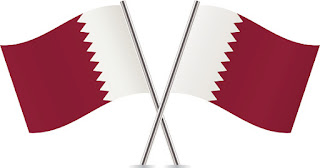Qatar's Efforts in Preventing Terrorism Funding
Let the Experts Speak on this Topic
From the beginning of the siege of Qatar, the blockading countries -- Saudi Arabia, the U.A.E., Bahrain, and Egypt -- anchored their narrative about Qatar in a way that arguably would trigger the passions of a Western audience. Qatar, they asserted, financed terrorists, sheltered terrorist leaders, and supported Islamic radical movements throughout the region. Qatar, on the other hand, consistently denied these claims. It also publicly condemned 2017-18 terrorist attacks in Qatif, Pakistan, Egypt, Manchester, Tehran, London, Bahrain, Somalia, Barcelona, Jeddah, Peshawar, Kabul, and Benghazi.
I am in the process of writing three articles about the siege of Qatar. I spent the week-end closely examining these allegations. I have found two reports worth reviewing:
- Country Reports on Terrorism 2016, U.S. Dept. of State (July 2017), available at https://www.state.gov/documents/organization/272488.pdf;
- Mutual Evaluation Report: Anti-Money Laundering and Combatting the Financing of Terrorism, Qatar, Middle East North Africa Financial Action Task Force (April 9, 2008), available at file:///D:/Users/py15990/Downloads/Class%20Prep/Siege/2008%20MER%20Qatar.pdf.
On July 19, 2017, the U.S.
Department of State issued its annual Country Reports on Terrorism 2016. U.S. law requires the department to provide
Congress a complete report on terrorism for countries that meet certain
criteria set out in the law. The summary
shows that Qatar equals or exceeds its neighbors in efforts in fighting
terrorism. On Qatar’s role in terror
financing the report found:
Qatar is a member of the Middle East
North Africa Financial Action Task Force (MENAFATF), a Financial Action Task
Force-style regional body, and the Qatar Financial Information Unit is a member
of the Egmont Group of Financial Intelligence Units. Qatar has made significant
progress on deficiencies identified in its MENAFATF Mutual Evaluation Report in
2008. According to the Second Biennial Update Report, Qatar is deemed
“Compliant or Largely Compliant” with all but recommendation 26, which accounts
for regulation and supervision of financial institutions.
* * *
The Government of Qatar has made
progress on countering the financing of terrorism (CFT), but terrorist
financiers within the country are still able to exploit Qatar’s informal
financial system. In 2015 and 2016, Qatar prosecuted and convicted Qatari
terrorist financiers for the first time. As part of ongoing reforms to curb
terrorist financing, the State of Qatar issued the Cybercrime Prevention Law
and the Law Regulating Charitable Activities in 2014. Qatar continued to be an
active participant in U.S.-sponsored training and capacity building focused on
CFT issues.
(Emphasis added.) The report also discusses progress
in the blockading countries and recognizes that each one faces unique
challenges when trying to prevent money-laundering, eliminate funding for terrorism, and reduce the support for violent Islamist groups. While
the report got very little attention in the press of Qatar or the West, it does
support a narrative that Qatar has responded to the stated interest of its blockading neighbors.
The second report allows a reader to analyze the extent of the efforts taken since 2008 by Qatar to meet the stated goals of eliminating terrorism in the world. It seems to serve as a baseline assessment. Similar reports exist for the blockading countries.
I will watch closely for the 2017 report that the U.S. Department of State will publish in July 2018. So much has happened during that year. I wonder how the department will analyze it.




Comments
Post a Comment